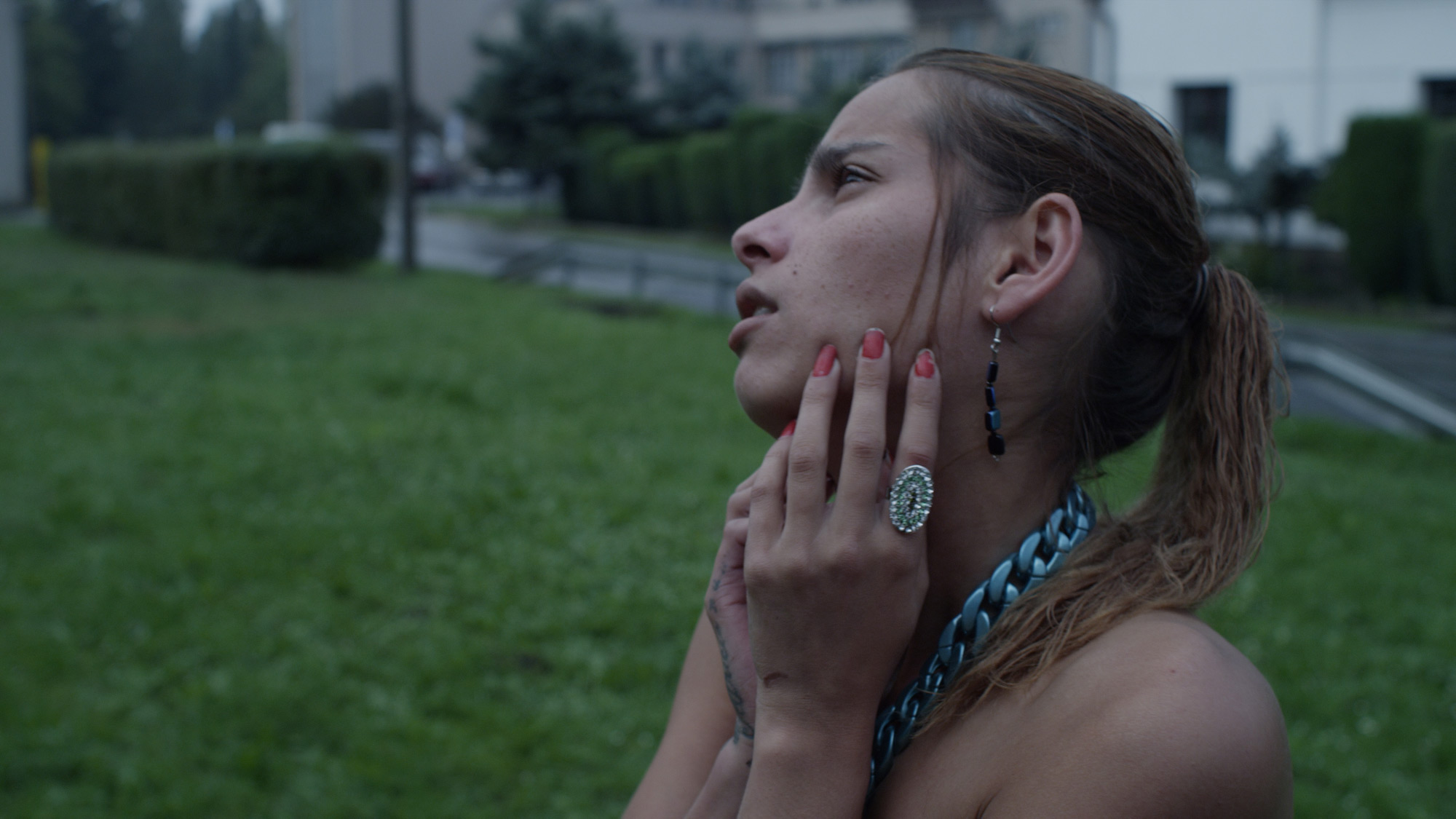“I think I’m in love with you,” a middle-aged woman (Lenka Vlasakova) confesses to a thuggish strip-club bouncer (Zdenek Godla). The confession is startling, to say the least, because these two characters don’t really know each other. The bouncer occasionally comes in to buy cigarettes at the convenience store where the woman works, leading the woman to track him down to make her true feelings known.
READ MORE: ‘Yourself And Yours’ Is A Charming Entry For Newcomers To Hong Sang-Soo [TIFF Review]
This is just one absurd moment in Petr Vaclav’s depressing Czech dramedy “We Are Never Alone.” More a series of occasionally funny, but always bleak, vignettes than a cohesive narrative, “We Are Never Alone” is reminiscent of Wayne Wang’s 1995 indie “Smoke,” about the lives of several characters connected to each other via a neighborhood cigar store. Here, the convenience store where Vlasakova works stands in for the smoke shop, and the film seems to spiral out from there.
 We meet Vlasakova’s husband (Karel Roden), a manic hypochondriac prone to dramatic outbursts; a single-mother (Klaudia Dudova) who works at Godla’s bar and pines for her imprisoned husband; and a right-wing nutjob prison guard (Miroslav Hanus), who befriends Roden’s character. These individuals, who remain nameless (save for Dudova’s character), collide off one another with mixed results. Vlasakova engages in a troubled affair with Godla, going so far as to attempt to land a job in his strip club; Godla, meanwhile, lusts after Dudova’s character and struggles to remain tough and reserved, hiding a buried sensitive side; Roden and Hanus have long, rambling, amusing conversations about how far the country has fallen.
We meet Vlasakova’s husband (Karel Roden), a manic hypochondriac prone to dramatic outbursts; a single-mother (Klaudia Dudova) who works at Godla’s bar and pines for her imprisoned husband; and a right-wing nutjob prison guard (Miroslav Hanus), who befriends Roden’s character. These individuals, who remain nameless (save for Dudova’s character), collide off one another with mixed results. Vlasakova engages in a troubled affair with Godla, going so far as to attempt to land a job in his strip club; Godla, meanwhile, lusts after Dudova’s character and struggles to remain tough and reserved, hiding a buried sensitive side; Roden and Hanus have long, rambling, amusing conversations about how far the country has fallen.
Writer-director Vaclav captures all of this with stark realism, as if to offset the more absurdist and occasionally surreal moments. He keeps his camera tight on his ensemble, creating at times an almost claustrophobic effect. Even when two characters are wandering down a country road outside, the screen is boxed-off, limiting the landscape. Curiously, Vaclav begins the film in a stark black-and-white before shifting into color. This color change happens at what first appears to be a momentous moment — when Vlasakova hops on her motorbike to go confess her love to Godla. Is this Vaclav’s way of signaling a character breaking out of her fixed routine into a new life? Maybe! But why, then, does the director decide to switch back to black-and-white later in the film, only to switch yet again to color? The result is rather baffling, and ends up being more distracting than the filmmaker perhaps intended.
 As a slice-of-life drama, “We Are Never Alone” has merit. The actors are all achingly real, particularly Vlasakova, who must suffer forms of abuse from her husband, her lover and her cold, distant father for whom she works. A scene where Godla verbally scolds Vlasakova for dressing provocatively to impress him, going so far as to call her a whore, is almost too painful to watch due to the defeated look on Vlasakova’s face. Moments like these may be fine examples of character acting, but they don’t quite add up to a successful feature film. The disjointed narratives lean toward sluggishness, and despite stabs of comedy, there’s a sour misery blanketing this film that at times is almost too much to sit through. [C]
As a slice-of-life drama, “We Are Never Alone” has merit. The actors are all achingly real, particularly Vlasakova, who must suffer forms of abuse from her husband, her lover and her cold, distant father for whom she works. A scene where Godla verbally scolds Vlasakova for dressing provocatively to impress him, going so far as to call her a whore, is almost too painful to watch due to the defeated look on Vlasakova’s face. Moments like these may be fine examples of character acting, but they don’t quite add up to a successful feature film. The disjointed narratives lean toward sluggishness, and despite stabs of comedy, there’s a sour misery blanketing this film that at times is almost too much to sit through. [C]
Click here for our complete coverage of the 2016 Toronto International Film Festival





